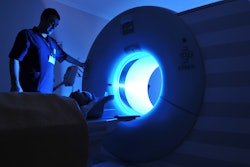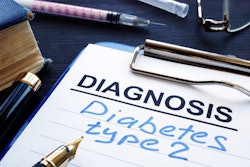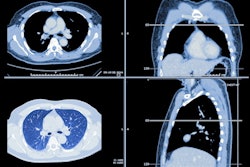Opportunistic low-dose CT (LDCT) lung cancer screening can reduce mortality from the disease by almost 50%, research published December 12 in JAMA Network Open has found.
The findings suggest a way to make lung cancer screening uptake more comprehensive, according to a team led by Lijie Wang, PhD, of Shandong University in Jinan, China.
"People with a younger age and family history of lung cancer may be more likely to accept opportunistic LDCT screening," the group wrote. "Furthermore, people with a family history of lung cancer may be more actively involved in opportunistic lung cancer screening because they may have a higher risk perception."
Lung cancer is the second most common cancer and the leading cause of cancer-related death worldwide. But since it may not cause symptoms in its early stages -- and since treatments for late-stage lung cancer usually have a poor prognosis, with a five-year survival rate less than 10% -- "timely diagnosis of lung cancer at an early stage is an important measure to improve patient survival," according to Wang's team.
Despite lung cancer screening guidelines that recommend annual LDCT for eligible individuals, compliance with these guidelines remains low, the investigators noted. CT imaging is widely used for a variety of indications, but it's unclear whether lung cancers could be identified opportunistically via these exams, and "whether opportunistic LDCT screening is associated with reduced lung-cancer mortality," they wrote.
The group assessed whether opportunistic LDCT screening translates to improved prognosis among adults with lung cancer in mainland China. The study that included 5,234 patients who underwent lung cancer screening at Weihai Municipal Hospital Healthcare Group, Weihai City, China, between 2016 and 2021. Opportunistic LDCT was defined as CT imaging performed for health check-ups, nonpulmonary indications, and annual visits; the researchers tracked demographic indicators, tumor characteristics, comorbidities, and treatment course, and categorized patients into screened and unscreened groups based on whether their lung cancer diagnosis was prompted by opportunistic screening or not.
Of the total patient cohort, 2,251 patients (43%) received a lung cancer diagnosis through opportunistic screening, the authors reported. In fact, opportunistic screening with LDCT was associated with a 49% lower risk of lung cancer death and 46% lower risk of all-cause death, they noted.
"Our findings suggest that opportunistic screening may serve as an important supplement to population screening to improve prognosis of adults with lung cancer," the team concluded.
The complete study can be found here.




















